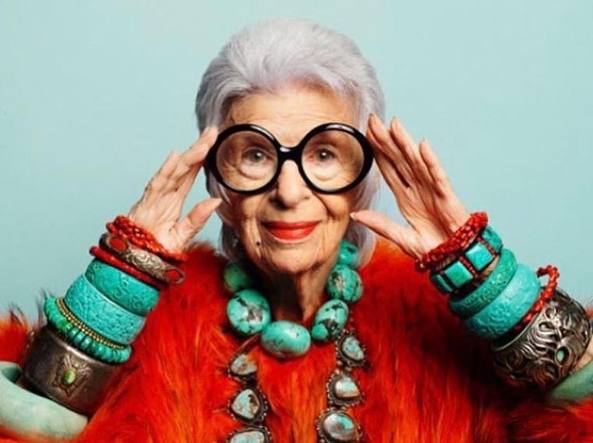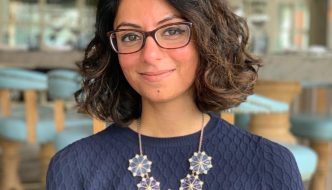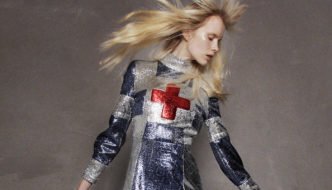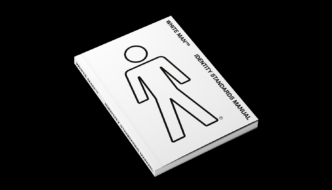Geriatric starlets: Why older women are the unsung heroes of the inclusivity movement
While some trends are now able to explode overnight, some seem to creep up on us from every side before hitting us with their full glory. It is arguably the latter which represents true cultural change, rather than simple fad. Recently, I have noticed a movement of this kind slowly emerging against the backdrop of our society’s current “inclusive” and “progressive” rhetoric: the rising visibility of older women. Marginalised groups are being empowered left, right and centre, seeing catwalks and governments alike championing a more diverse cast. But while the empowerment of different genders, skin colours and body types has been accompanied by joyful public fanfare, the growing visibility of different ages has been far more subtle. Subtle, yes, but powerful nonetheless, and evidence, I think, of how our social attitudes are changing from a grassroots level.
It was the other night, watching television, when it really struck me. One of H&M’s Christmas adverts came on: a tongue-in-cheek cowboy face-off between two sets of women in a Wes Anderson style hotel. At one end of the corridor pose a gang of young women, dolled up in party clothes. At the other end, a band of equally glam older women stand, eyeing up the competition. The advert was as aspirational as any Christmas advert should be. The women on my screen oozed style, fun and attitude. I realised how unusual it was to see this group of women over 60 presented, on prime time TV, in such an overtly glamorous way. Furthermore, to be positioned as a direct match for their younger counterparts, in a world where so often a woman’s gained years correlates with a loss of social power.
It is a sad fact that, in our society, women are perceived to lose their sexuality once they reach a certain age, and thus lose their sexual status along with it (the reality that our social status is so intertwined with our sexuality is an issue for another time). Whilst men can look forward to the respect garnered during their days as silver foxes, women are perceived to lose value with age, and are routinely subject to age discrimination in the workplace. In the media, this discrimination translates simply into invisibility. Ad campaigns for anti-ageing products have long featured women who look barely a day over 30. It was only last year that cosmetics brand Covergirl made the landmark announcement that 69-year-old Maye Musk is to be their latest face, following the appointment of Covergirl’s first male ambassador in 2016.
Likewise, fashion trends inspired by the retro style of older women are consistently appropriated by younger sub-cultures. The inspiration behind 2018’s widespread trend ‘menocore’, which champions linen trousers, flowing skirts, and eclectic jewellery, was described by fashion website Man Repeller as being ‘a 50-something-year-old woman who doesn’t care what other people think’. Arguably, the catch is that these clothes are only made cool by the 20-year-old fashion darlings wearing them. But I would like to propose that this trend is part of wider acceptance, and appreciation for, older women, and the style that they project. It is saying something that Missguided, a brand whose identity hinges on young, fun, feminine sexuality, recently gave the 90-year-old internet sensation Baddie Winkle her own clothing line.
On Instagram one can find a growing treasure trove of older fashion icons among the sea of influencers and models. On the feed of Vogue’s street-style photographer Phil Oh (@mrstreetpeeper), it is the flamboyant outfits worn by designers Vivienne Westwood and Jenny Kee that shine out. Elsewhere professor-turned-blogger Accidental Icon has achieved a cult following for her bold and honest approach to fashion. She is over 60 and endlessly stylish, which she puts down to her belief in “dressing honestly” and “living” in clothes, rather than consuming them.

We must also acknowledge the influence of self-proclaimed “geriatric starlet” Iris Apfel. Born in 1921, her long life has seen her forge an illustrious career as a fabric designer (and chief supplier of fabric to The White House for many years), and as a fashion icon and muse. Her cultural influence has not gone uncelebrated: a biopic titled Iris was released in 2003, and MoMa held an exhibition dedicated to her personal style in 2006, which went on to exhibit across the US. This year Mattel, the manufacturer of the ultimate female antagonist, Barbie, released an Apfel-inspired doll, saying, “Iris Apfel embodies the quintessential role model for Barbie with her singular style vision, entrepreneurial spirit and independence.” This is a poignant step in recognising older women as the ultimate role models; as women that we should strive to be, rather than be afraid of becoming.
In many of Iris’ famed quotes, she references the need to embrace one’s individuality and sense of self. She once said, “You have to take time to be open and honest with yourself. If you don’t know yourself, you’ll never have great style.” Here, Iris hits the nail on the head. This idea of a comfort within one’s own skin, a true knowing of oneself, is what is so inspirational and aspirational about older women. The wisdom and experience gained over a lifetime is something one could never dream of possessing overnight. It seems that older women, after all, hold the key to the most sought-after accessory of the moment: self-acceptance.
Yes, some older women have enjoyed recognition for many years, but, I would argue, never as publicly, never as commercially, as we are seeing now. Age visibility is so crucial to ensuring that there are not swathes of our population who remain ignored, and now feels like the perfect time to turn with the tide.
Filed under: Politics
Tagged with: activism, Art Activism, beauty, Diversity, fashion, Fashion and Freedom, female, female politics, inclusivity, social commentary, Women in the Arts, Women with Vision



Comments